Unusual Zero-Waste Kitchen Tips: 6 Swaps to Try
Have you ever looked at your overflowing kitchen bin and thought, Where does it all come from? If so, you’re not alone. The kitchen is the heart of the home but also a hotspot for waste – from excess food scraps to single-use packaging. Many of us dream of cutting down on waste but feel overwhelmed by the sheer scale of the task.
What if I told you that making a zero-waste kitchen isn’t about drastic changes or perfection? Instead, it’s about clever, easy swaps that make a difference over time. These zero-waste kitchen tips will help you get started with simple solutions that transform your kitchen into a sustainable haven.
Does this resonate with you? If so, keep reading. You’re about to discover how simple and unusual zero-waste kitchen tips can transform not just your kitchen, but your approach to sustainable living.
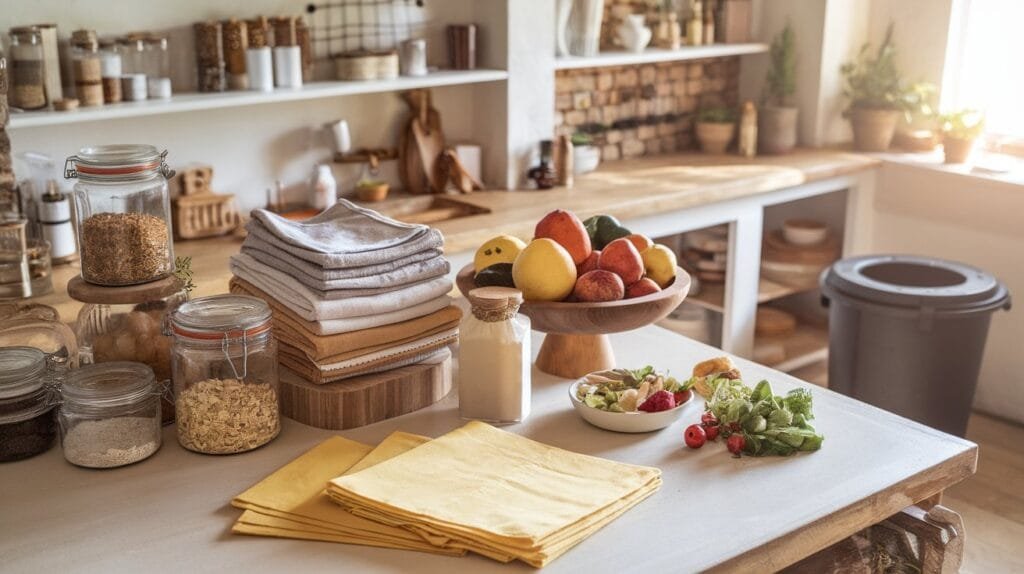
Why the Kitchen is a Waste Hotspot
The truth is, the kitchen often becomes an unintentional hub of waste. Think about it:
- The cling film used to wrap leftovers.
- The seemingly endless parade of plastic packaging from your weekly shop.
- The forgotten food shoved to the back of the fridge.
It adds up fast.
But the problem goes deeper than just an overflowing bin. According to environmental experts, household waste is a leading contributor to landfill buildup, with kitchens being a top offender. Every piece of non-biodegradable packaging adds to a growing crisis – one that impacts our planet and future generations.
That’s why adopting zero-waste kitchen tips is so important. Not only does it reduce waste, but it also empowers you to make small, impactful changes that contribute to a healthier environment.
The Benefits of a Zero-Waste Kitchen
Why should you consider transforming your kitchen using zero-waste kitchen tips? The advantages go far beyond reducing waste. Here’s how embracing zero-waste practices can enrich your life and the planet.
Environmental Impact
Every piece of waste you avoid sending to the bin contributes to a healthier planet. By reducing single-use plastics and food waste, you directly lower methane emissions from landfills and conserve resources like water and fossil fuels.
Adopting zero-waste kitchen tips creates a ripple effect, turning small changes into significant contributions to sustainability.
Financial Savings
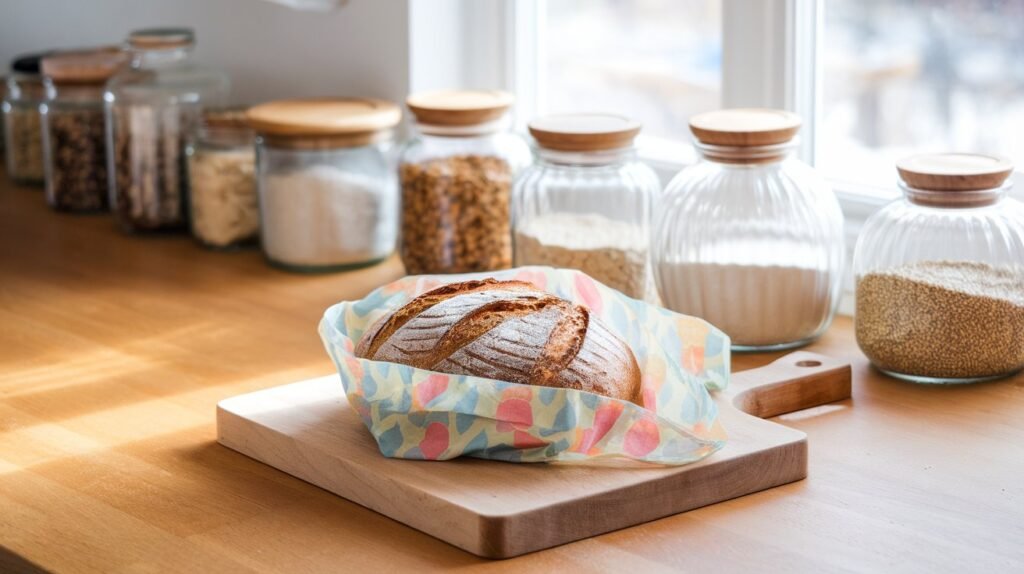
Following zero-waste kitchen tips isn’t just good for the environment; it’s also great for your wallet. Reusable alternatives like beeswax wraps or silicone bags might require an initial investment, but they save money in the long run.
Plus, minimising food waste through better storage and creative cooking reduces unnecessary grocery purchases. For instance, planning meals around ingredients you already have ensures nothing goes to waste.
Healthier Living
Implementing zero-waste kitchen tips often leads to healthier habits. You’ll rely less on processed, packaged foods and more on fresh, whole ingredients.
Even small steps, like making homemade cleaning products, reduce exposure to harmful chemicals, supporting both your health and the planet’s well-being.
Community Impact
By following zero-waste kitchen tips, you set an example for your friends, family, and neighbours. Sharing your journey and tips can inspire others to adopt sustainable kitchen practices, creating a collective effort toward a healthier planet.
Imagine if every home in your community reduced waste – the results would be monumental.
Overcoming Common Challenges
Transitioning to a zero-waste kitchen is a rewarding journey, but it’s not without its challenges. Here’s how to overcome common hurdles and succeed with zero-waste kitchen tips.
Time Constraints
Many people feel adopting zero-waste kitchen tips requires more time than they can spare. Start small and integrate one or two changes into your routine, like using glass jars for storage or composting food scraps. Over time, these habits become second nature.
Meal prepping is another fantastic way to save time and reduce waste – you’ll know exactly what ingredients to use and avoid letting food spoil.
Finding the Right Products
It’s easier than ever to find sustainable items for your kitchen. Look for products like beeswax wraps or reusable sponges online or at eco-friendly stores. Following zero-waste kitchen tips often means replacing disposables with durable alternatives, which you can source locally or in bulk.
Don’t forget to shop second-hand for items like storage containers – it’s budget-friendly and waste-free!
Getting the Family Onboard
Making your kitchen zero-waste is much easier when everyone at home is enthusiastic about the journey. Involve your family in fun and interactive activities, like creating DIY cleaning products from citrus peels or holding a “leftovers night” where everyone contributes to repurposing unused ingredients.
Educate children about the importance of sustainability through simple tasks, such as sorting waste or helping with composting. When everyone feels included and understands the purpose, adopting new habits becomes a shared goal rather than a solo effort.
Limited Space
Living in a flat or small home doesn’t mean you can’t implement zero-waste kitchen tips. Use stackable jars, vertical compost bins, or collapsible storage to maximise your space while staying organised.
Even a tiny kitchen can benefit from creative zero-waste strategies. For example, magnetic spice jars on the fridge can save cupboard space while keeping ingredients easily accessible.
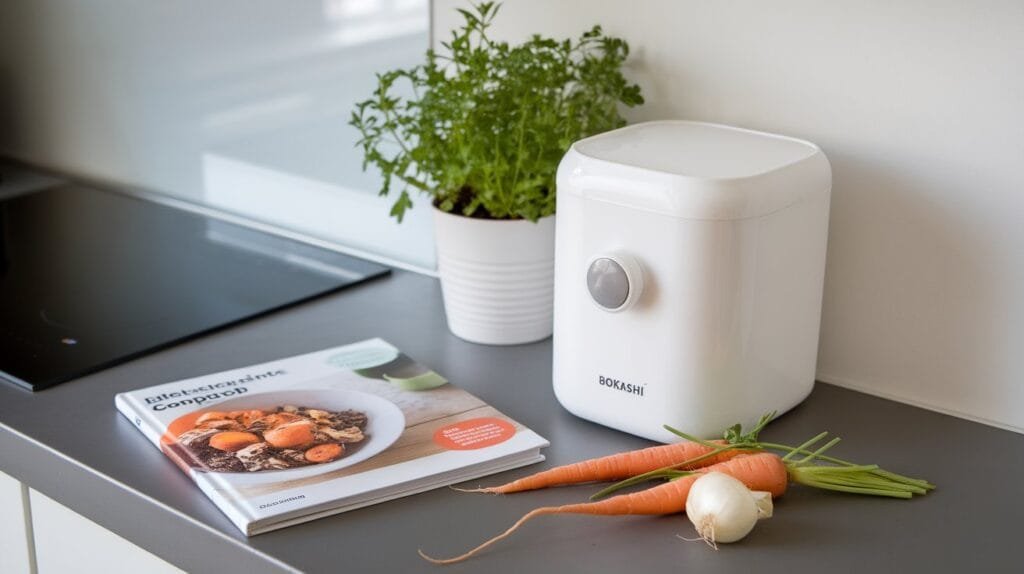
Unusual Zero-Waste Kitchen Tips: Get Started Today
Now that you’re ready to embrace a sustainable lifestyle, here are some practical, unusual zero-waste kitchen tips you can try today:
1. Swap Cling Film for Beeswax Wraps
Reusable and naturally antibacterial, beeswax wraps are a perfect alternative to plastic wrap. They’re easy to clean, biodegradable, and last for months.
2. Turn Glass Jars into Multi-Purpose Heroes
Save those empty jars! Use them for organising pantry staples, storing leftovers, or as eco-friendly containers for on-the-go snacks.
3. Get Creative with Composting
Composting doesn’t require a garden. Use small-space solutions like bokashi bins or worm composting to turn scraps into rich soil.
4. DIY Cleaning Products from Kitchen Scraps
Turn citrus peels into natural cleaning sprays. Soak them in vinegar, dilute with water, and you’ve got a chemical-free cleaner that smells fantastic.
5. Upcycle Leftovers into Delicious Meals
Avoid food waste by repurposing leftovers. Create broths from vegetable scraps or transform stale bread into crunchy croutons.
6. Replace Paper Towels with Reusable Cloths
Switch to washable cloths for cleaning up spills or wiping counters.
Frequently Asked Questions About Zero-Waste Kitchens
Q: Do I need to buy expensive products to go zero-waste?
A: Not at all! Many zero-waste kitchen tips focus on repurposing what you already have, like reusing glass jars or making cleaning products from kitchen scraps. Start with what’s accessible and affordable for you.
Q: How do I make composting work in a small kitchen?
A: Compact solutions like bokashi bins or countertop compost containers make it easy to manage food scraps in tight spaces. These methods are odour-free and perfect for flats or small homes.
Q: Will it take a lot of time to follow zero-waste kitchen tips?
A: While there’s an adjustment period, most tips save time in the long run. Meal planning, for example, reduces food waste and simplifies your weekly routine.
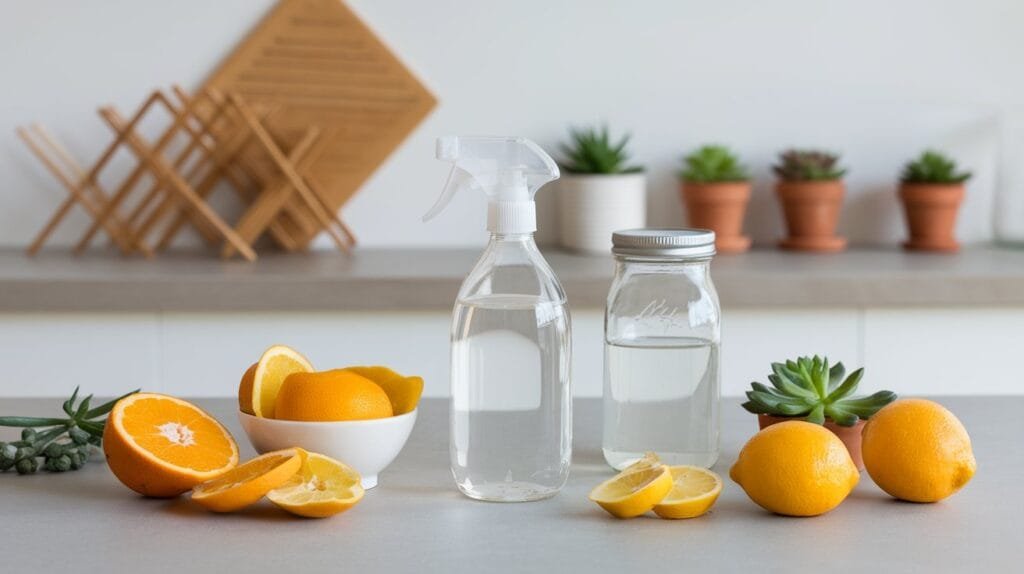
Take Your Zero-Waste Kitchen Further with The Grow Make Learn Box
Imagine receiving everything you need to turn your small urban garden into a thriving homestead—all curated, delivered, and ready to go. With The Grow Make Learn Box, you’ll get:
- Seasonal Seeds: Perfect for small spaces and beginner-friendly crops.
- Essential Tools: Compact gardening tools designed for urban use.
- Hands-On Guides: Step-by-step instructions to help you grow, make, and learn with confidence.
Whether you’re starting with a balcony garden or revamping a neglected corner, The Grow Make Learn Box takes the guesswork out of your homesteading journey.
Not Ready to Subscribe Yet? Start Small with Our Newsletter!
Looking for inspiration and practical tips to transform your urban space? Our newsletter is packed with:
- Easy-to-follow gardening tutorials.
- DIY craft ideas for sustainable living.
- Exclusive updates and offers from The Grow Make Learn community.

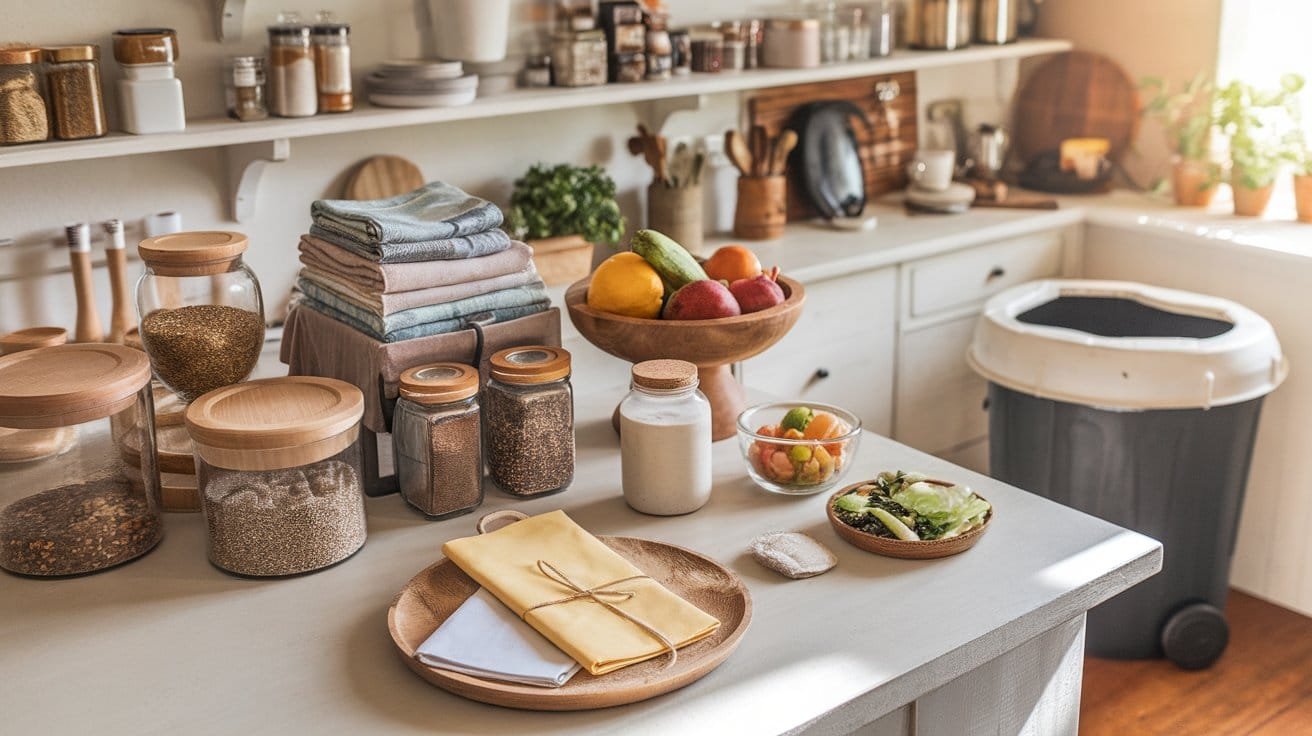
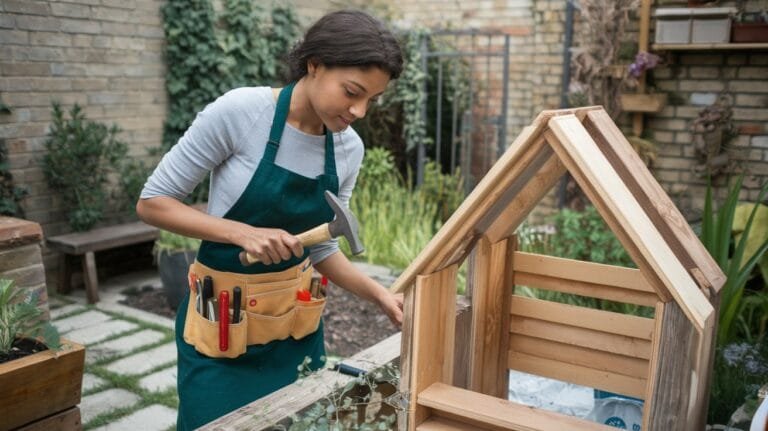

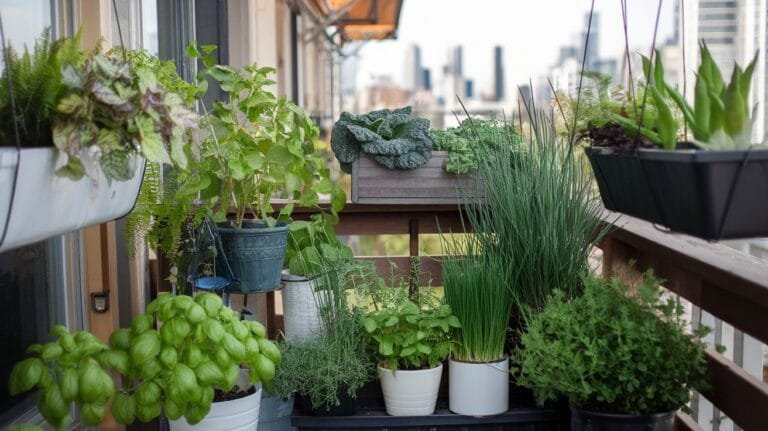
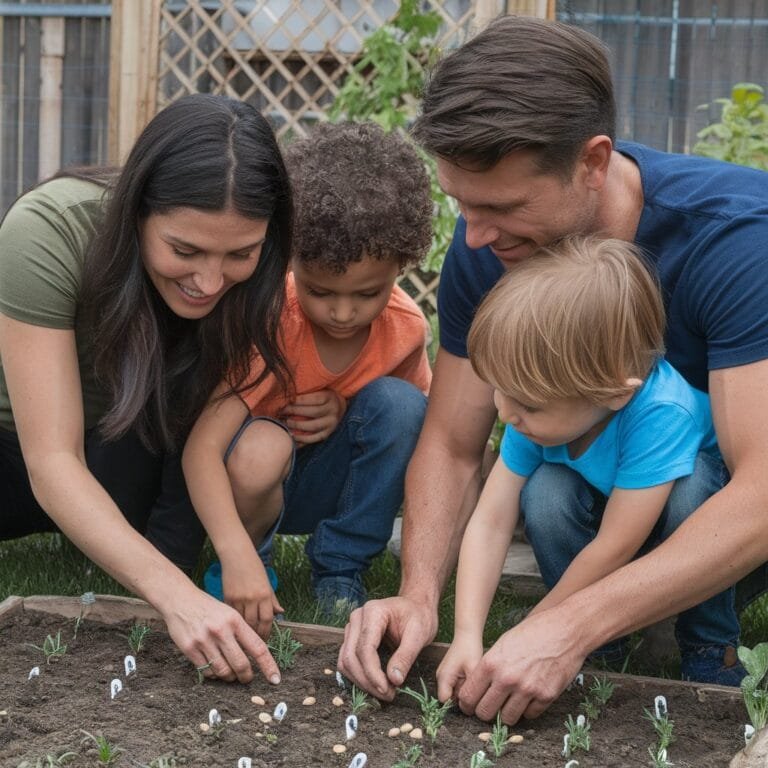
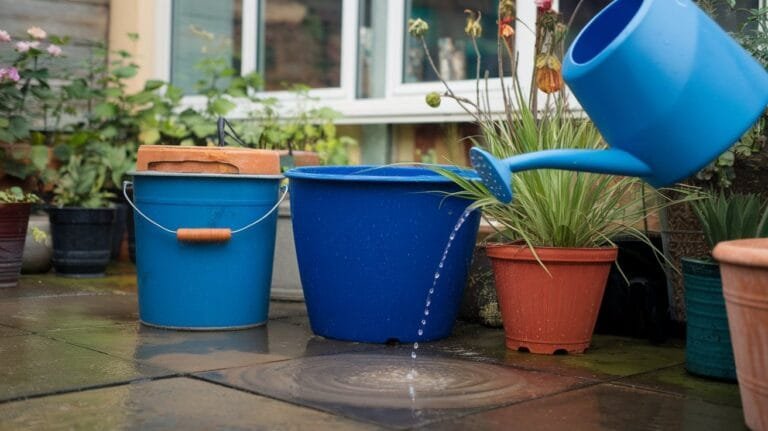

One Comment